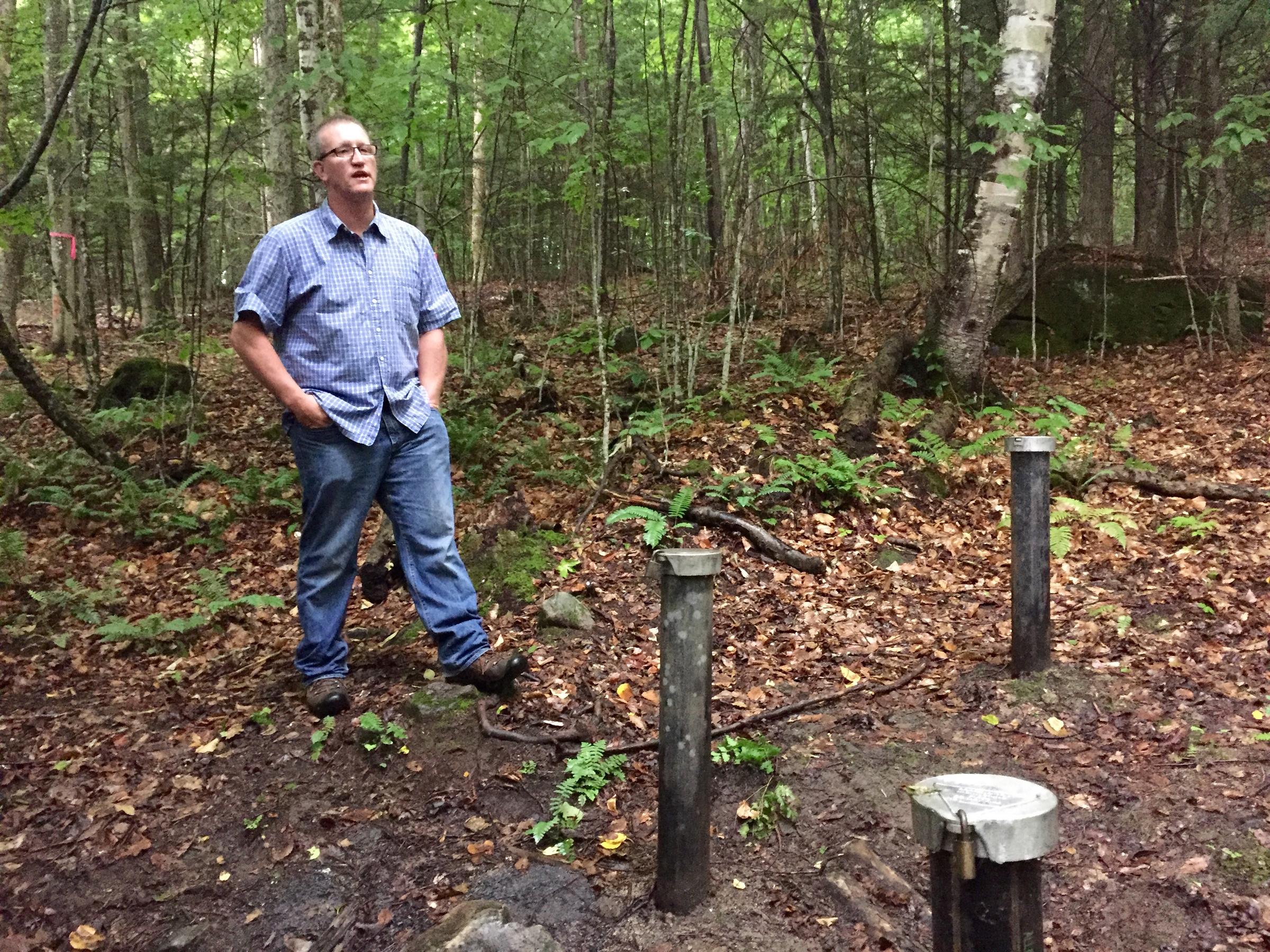Dartmouth Hazardous Waste Site Contaminates Drinking Water

Hanover resident Richard Higgins stands near a well 375 feet away from his property, where groundwater tests have shown hundreds of times the New Hampshire state-alloted amount of the chemical 1,4-dioxane, a suspected carcinogen. Credit: Rebecca Sananes / VPR
A Dartmouth hazardous waste burial site has contaminated the ground water near a Hanover neighborhood. Those chemicals are now on the move, and at least one family’s drinking water has been affected.
At her home on Rennie Road, whenever Debbie Higgins wants a glass of water, she passes her sink and heads to a cooler of water provided by Dartmouth College.“This is the water we use for brushing our teeth, drinking, for washing fruits and vegetables, for cooking,” she said recently, filling a glass. It’s been like this since last September, when Dartmouth notified Debbie and her husband Richard Higgins that 1,4-dioxane — a probable carcinogen — had contaminated their water.
A chemical plume had moved downhill from a burial site about 800 feet away, at Rennie Farm. In the 1960s and ’70s, it was a burial ground for lab animals; human tissue and fetuses; and radioactive materials used for research, according to Dartmouth Medical School records.
